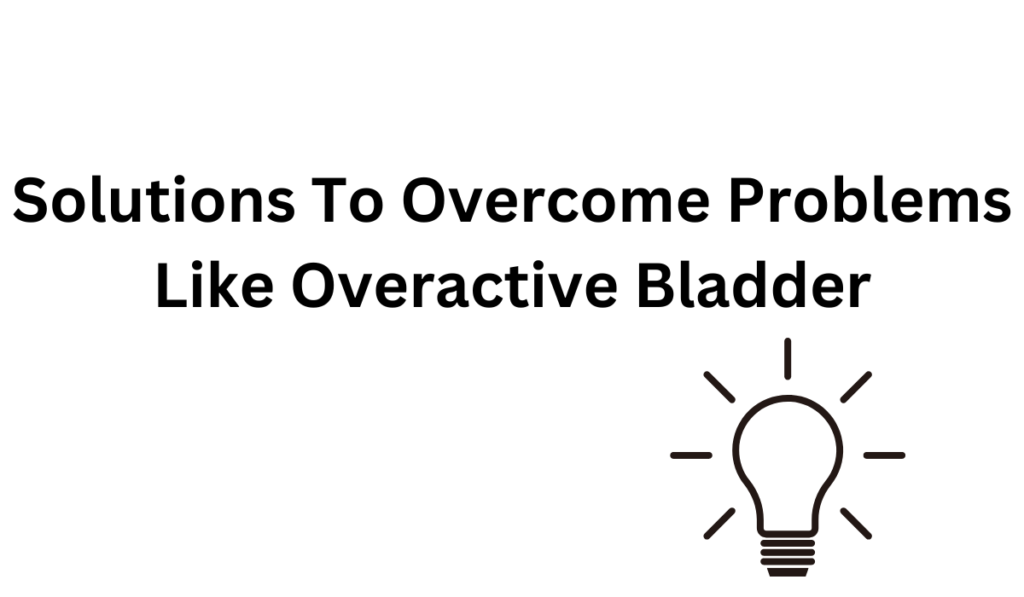
Are you frequently experiencing the urge to urinate right after drinking water? This could be caused by various factors, such as an overactive bladder or urge incontinence.
These factors can make you feel helpless and potentially lead to awkward situations when in the company of others. When you need to urinate, you may not always have access to a restroom, which can make things even more challenging.
As a result, you may feel anxious and hesitant to drink enough water to stay hydrated, simply to avoid needing to use the restroom. So, what are the underlying reasons for this frequent urge to urinate after drinking water?
Why Do I Pee Immediately After Drinking Water?
You may be experiencing an overactive bladder, urge incontinence, or nervousness caused by factors such as anxiety, stress, and other related issues.
When Problems Like Overactive Bladder or Urge Continence Arise?
Overactive bladder occurs when the bladder contracts at inappropriate times, sometimes even when there is no sensation of needing to urinate despite the bladder being full. This can result in embarrassing urinary leakage, which may cause nerve damage and potentially impact brain health.
When issues such as overactive bladder or urge incontinence arise, it can lead to frequent and sudden urges to urinate, potentially resulting in the involuntary release of urine. This can create discomfort and embarrassment for the individual, impacting their daily activities and quality of life.
Seeking medical advice and treatment can help manage these conditions and improve the individual’s overall well-being. Today, we will explore the causes and solutions for bladder incontinence.
Solutions To Overcome Problems Like Overactive Bladder

- Reduce Caffeine Intake
One of the ways to manage overactive bladder is to reduce caffeine intake. Caffeine is a diuretic, which means it can stimulate the production of urine and increase the frequency of urination. Cutting down on caffeinated beverages such as coffee, tea, and soda may help reduce the symptoms of overactive bladder.
Other methods that may help include pelvic floor exercises, bladder training, and medication prescribed by a doctor. It is recommended to consult a healthcare professional for proper diagnosis and treatment of overactive bladder.
- Do Not Overdrink Water
Another way to manage overactive bladder is to avoid overdrinking water, especially during the hours leading up to bedtime. This can help reduce the frequency of urination and minimize the risk of urinary leakage. It’s important to drink enough water to stay hydrated, but not so much as it leads to increased bladder activity.
Pressuring the bladder by consuming large amounts of water at once is not advisable. Therefore, if you wish to consume an adequate amount of water daily, there are a few strategies that can be helpful. Let’s look:
- Remember, drinking water every day is essential and not harmful. It helps in the easy and smooth passage of urine. One way to determine if you are drinking enough water is to check the color of your urine. If it is pale yellow or colorless, then there is no cause for concern.
- Another strategy is to sip water slowly at regular intervals throughout the day, rather than gulping it down all at once.
- Record Your Urge to Pee
Recording your urge to pee is a helpful strategy to manage overactive bladder. Keeping a record of when you feel the urge to urinate, how often you go, and how much urine you release can help you identify patterns and better understand your condition.
By keeping track of your urination patterns, you may also be able to identify triggers that exacerbate your symptoms, such as certain foods or drinks. This can help you make adjustments to your diet and lifestyle to minimize the frequency of urination.
Other methods that may help include bladder training, pelvic floor exercises, and medication prescribed by a doctor. It is recommended to consult a healthcare professional for proper diagnosis and treatment of overactive bladder.
- Try to Endure the Feeling if You can.
If you experience the urge to urinate frequently, it may be helpful to resist the urge to go to the washroom each time you feel it. By doing so, you can develop a habit of withstanding the urge and gain better control over your bladder.
Gradually increasing the time between urination can also help you train your bladder to hold urine for longer periods. However, it’s important to not hold in urine for too long as this can cause discomfort and potentially lead to bladder infections.
How to Have Good Bladder Health?

Experiencing stress, tension, depression, anxiety, and insomnia can lead to a constant urge to urinate. Today, we will share some tips to help promote good bladder health. Let’s get started!
- Ensure More and More Fiber Intake
Consuming an adequate amount of fiber can help promote good bladder health. Fiber-rich foods such as fruits, vegetables, whole grains, and legumes can help regulate bowel movements and prevent constipation, which can put pressure on the bladder and lead to urinary incontinence.
In addition to promoting healthy bowel movements, fiber can also help control blood sugar levels and maintain a healthy weight, both of which can contribute to good bladder health.
It is recommended to consume at least 25-30 grams of fiber daily. However, it’s important to increase fiber intake gradually and drink plenty of water to avoid digestive discomfort.
2.Reduce Stress
Reducing stress can help improve bladder health as stress and anxiety can contribute to bladder problems such as urinary incontinence and overactive bladder.
There are several techniques that can help reduce stress and promote relaxation, including deep breathing exercises, meditation, yoga, and progressive muscle relaxation. Engaging in regular physical activity and getting enough restful sleep can also help reduce stress levels.
In addition, seeking support from friends, family, or a mental health professional can also help manage stress and anxiety levels. By reducing stress, you may also improve your overall health and well-being.
- Avoid Gaining Weight
Maintaining a healthy weight is important for good bladder health. Excess weight can put pressure on the bladder and contribute to bladder problems such as urinary incontinence and overactive bladder.
To maintain a healthy weight, it is important to engage in regular physical activity and follow a balanced diet that includes plenty of fruits, vegetables, whole grains, and lean protein sources. Reducing intake of high-calorie, high-fat, and sugary foods can also help prevent weight gain and promote overall health.
It is also important to avoid crash diets or rapid weight loss programs as these can negatively impact bladder health and cause dehydration, which can irritate the bladder and increase the risk of urinary tract infections. Gradual, sustainable weight loss through healthy lifestyle changes is recommended for good bladder health.
- Avoid Eating Junk Food
Avoiding junk food is an important step towards good bladder health. Junk food, which is often high in fat, salt, sugar, and processed ingredients, can contribute to weight gain and other health problems that can negatively impact bladder health.
Instead of relying on junk food, it is recommended to follow a balanced diet that includes plenty of fruits, vegetables, whole grains, and lean protein sources. These foods are rich in nutrients and antioxidants that can help promote overall health, including good bladder health.
It is also important to drink plenty of water to stay hydrated and flush out toxins from the body. Limiting intake of caffeine, alcohol, and spicy foods may also help prevent irritation of the bladder and reduce the risk of bladder problems such as urinary incontinence and overactive bladder.
In a Nutshell
We hope that you now have a good understanding of the reasons behind your frequent urge to urinate. It is important to make necessary lifestyle adjustments to help reduce the urge to go to the bathroom.